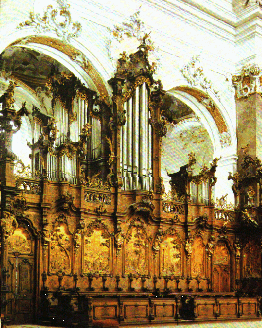
Honours Bachelor of Music (four years)
- Church Music
- Composition
- Comprehensive
- Music Education
- Music History
- Performance
- Theory
Diploma in Performance (one year)
| Faculty: Jan Overduin |
 |
Programs for Organists:
Honours Bachelor of Music (four years)
Diploma in Performance (one year) |
WHY STUDY CHURCH MUSIC?